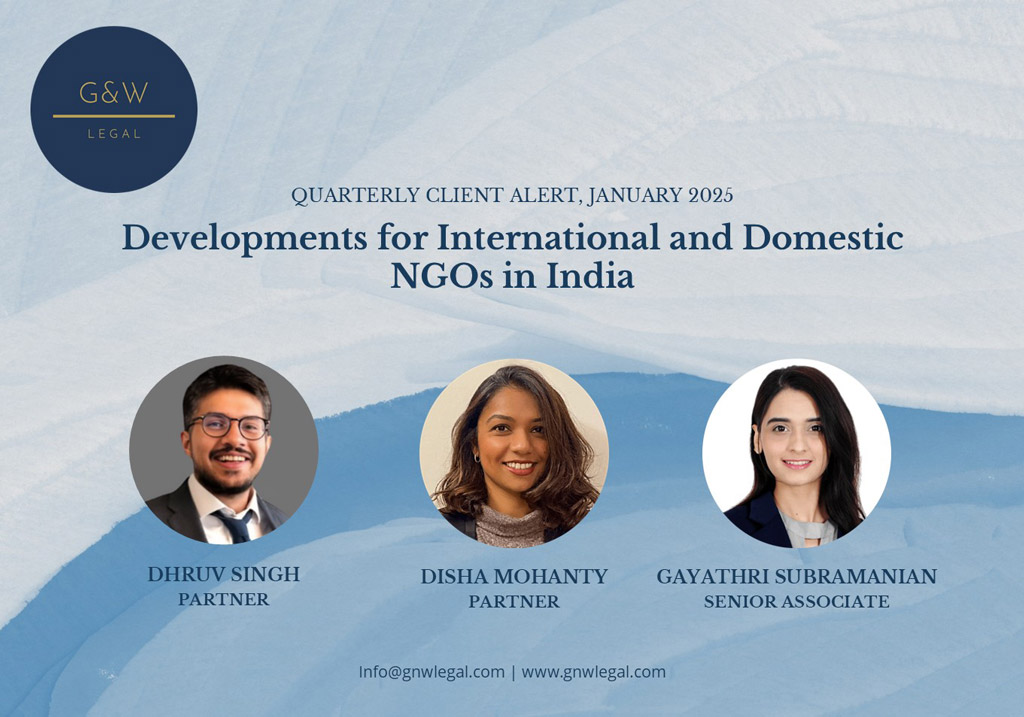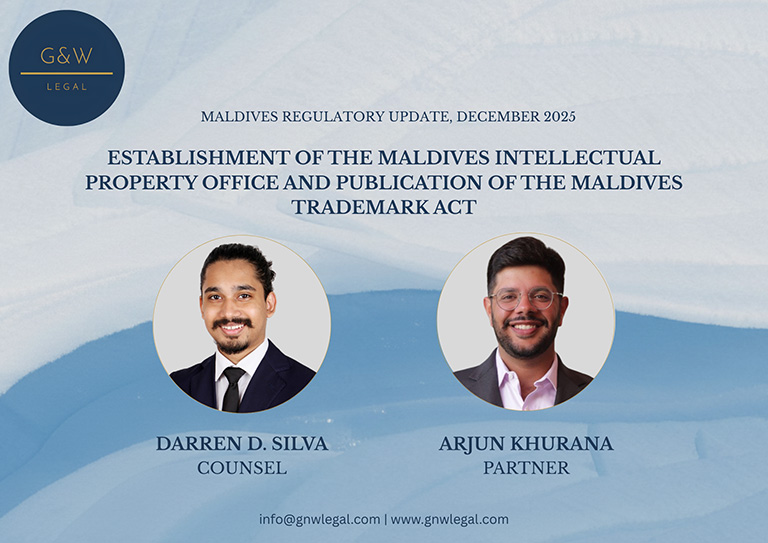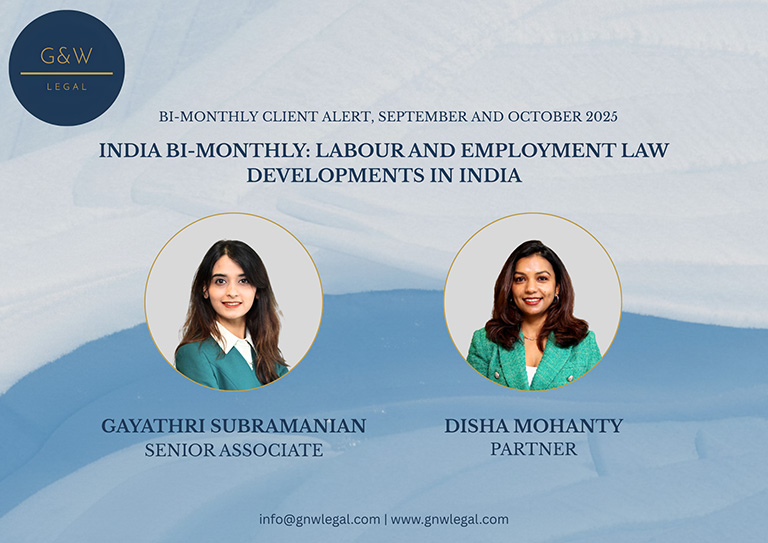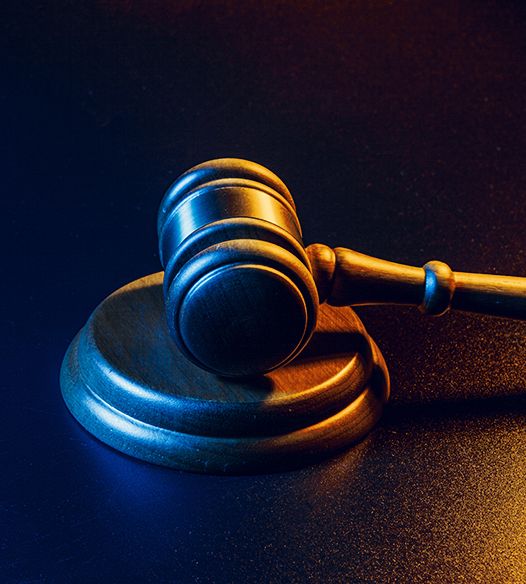
Background
The law relating to NGOs accepting foreign contributions in India is highly restricted and regulated by the Government of India. The Foreign Contribution (Regulation) Act, 2010 (“FCRA”) is the primary legislation that regulates the acceptance and utilization of “foreign contributions” or foreign hospitality by certain individuals or associations or companies. The Ministry of Home Affairs (“MHA”) is the relevant authority that regulates and oversees the compliances prescribed under the FCRA.
The definitions of foreign contributions and foreign hospitality considered under the FCRA are very wide in their ambit and include donations, delivery or transfer of any article beyond specified monetary values, currency and security including foreign securities.
According to public information, the licenses of as many as 20,712 organisations have been cancelled by the MHA. Over the past year, more than 100 NGOs, including notable entities like the Centre for Policy Research, Rajiv Gandhi Foundation, Rajiv Gandhi Charitable Trust, Oxfam India etc., have lost their FCRA licences allegedly due to the misuse of foreign grants.
Accordingly, for an INGO looking to collaborate with Indian NGOs or to establish their own base of operations in India as a not-for-profit entity and receive foreign contributions, registration under the FCRA and its continued compliance is indispensable.
Filing of form for notifying change in members on the FCRA portal eased for entities
For context, the FCRA requires registered entities to report changes in office bearers, members, or key functionaries as per the prescribed form in Form FC-6E on the portal maintained by the MHA.
With a view to address the challenges faced by entities in filing an additional form FC-6E application while a previous application is still pending, the MHA has eased the process vide a notification dated 25 October 2024.
The Foreign Contribution (Regulation) Rules, 2011 require an entity which has been granted a certificate or prior permission under the FCRA to intimate the government of any change in office bearers or key functionaries mentioned in the application for grant or renewal of registration or prior permission, within 45 days of the change. Often, while a previous application is still pending for approval with MHA (which could be for a long duration), further changes in the entities’ constitution may take place – leading to complications when filing fresh applications on the FCRA portal.
After examination of the matter, the MHA has clarified that entities are to submit new applications (in Form FC-6E) even if an earlier application is pending. Upon initiation of the new application, the details from the previous submission will be automatically updated, and the prior application will be closed with the remark “disposed as closed”.
MHA clarifies reasons for Denial/Refusal of Applications of Registration and Renewal under FCRA
- diversion of funds by the entity for carrying out anti-development activities or inciting malicious protests, concealment of facts/information by the entity in its application form, conviction under law is enforced or prosecution for an offence is pending against any office bearers/ members/ key functionaries; and
- field inquiry has revealed that no activity is being carried out by the entity, or the claimed activities could not be corroborated, or it revealed adverse inputs against the entity- such as involvement in incitement of protests, acceptance of foreign contribution of the entity is likely to affect social/religious harmony, linkage with radical/terrorist entities, etc.
- Renewal: includes that the entity has not utilised any foreign contribution for projects in the last 5 years, the entity has not uploaded the annual returns, or the entity has violated provisions of rules/act.
- Registration: includes that the entity has not fulfilled the criteria of spending a minimum amount of Rs. 15 lakhs for benefit of society in the last 3 financial years, entity is not in existence for the past 3 years.
MHA has extended validity of FCRA registrations for which renewal applications were pending consideration
- Those entities whose validity of registration certificates was extended till 31 December 2024 in terms of the preceding public notice of 28 September 2024 and whose renewal application is still pending.
- Those entities whose validity of registration is expiring between 1 Jan 2025 and 31 March 2025 and who have applied/will apply for renewal of registration before the expiry of their registration as required under FCRA.
MHA has issued a clarification regarding refund of tax deductions pertaining to foreign contributions
The FCRA requires registered entities to receive foreign contribution in a designated “FCRA account” as per the conditions prescribed under the FCRA, and no funds other than foreign contribution shall be received or deposited into that account.
Given the background above, FCRA registered entities had been facing difficulties in transferring the component of tax deducted at source (“TDS”) relating to foreign contributions which were received in their non-FCRA bank accounts after the tax filing process was complete. For context, TDS is deducted in respect of taxable transactions (including foreign contributions) of an entity pertaining to a given financial year, and at the end of the year, after the tax filings are made, some portion of the TDS is refunded by the tax authorities back to the entity’s bank account based on the filings made for such financial year. Given the prohibition in the FCRA from transferring funds into FCRA account, entities were unable to do so.
Accordingly, with a view to address these difficulties faced by FCRA registered entities in transferring tax refunds relating to foreign contributions, the MHA has issued a clarification dated 31 December 2024 stating that in case the consolidated tax refund is received by the entity in a Non-FCRA account, the tax refund amount pertaining to foreign contributions must be proportionately transferred into the FCRA bank account. This transfer shall not be considered by the authorities as a contravention of the restrictions contained in the FCRA.
Such amount will be considered as ‘other income’ within the meaning of foreign contributions and requires to be reported in Form FC-4 to the authority as prescribed under FCRA.
Chartered Accountants asked to report FCRA violations by NGOs
On December 31, 2024, MHA notified that chartered accountants (“CA”) filing audit returns on behalf of NGOs need to specify if the entity violated provisions of the FCRA or not.
The FCRA requires a CA to certify if the entity has utilised foreign contribution received for the purposes it was registered for, and the annual statements are to be uploaded on the FCRA portal. The Ministry said that the CAs will have to mention the name, email address, registration number of the auditor while issuing the audit certificate and specify if the NGO has violated the provisions of FCRA, 2010 or rules made, or notifications issued thereunder. If not, that will also need to be specified.
MHA amends the regulations prescribed under the FCRA and the reporting forms to accommodate recent decisions taken by the authority
The MHA also released the Foreign Contribution (Regulation) Amendment Rules, 2024 effective from 1 January 2025.
Under these amendment rules, the following were the key changes made to the regulations:
a. FCRA registered entities shall have the option to carry forward the unspent part of allowable administrative expenses in a financial year to the next year by specifying reasons in Form FC-4 as prescribed under the regulations.
b. Changes were also made to the format of Form FC-4 prescribed under the regulations such that it includes entries where the entity can mention the amounts relating to:
- transfer of foreign contribution part of income tax refund from Non-FCRA bank account pursuant to the MHA clarification dated 31 January 2024,
- carry forward of the unspent part of allowable administrative expenses in a financial year to the next year pursuant to the amendments to the main provisions of the rules.
c. Furthermore, the format of Form FC-4 was also amended such that it requires a certificate from the CA to certify that the entity has not violated any provisions of the FCRA, and where there are violations, they are to be mentioned specifically.
FCRA registered entities are advised to take note of the above amendments to remain abreast with the developments in the legal framework as announced by the MHA till date and ensure necessary compliance required under the FCRA.
Delhi High Court Issues Notice On Yuvraj Singh Foundation's Plea For Renewal of FCRA Registration
The Central Government had rejected the application for renewal to the Yuvraj Singh Foundation (“Foundation”) in March 2024. The Foundation has claimed that the same was done after a delay of more than one year by passing a non-speaking order, without granting it any opportunity of being heard.
On 24 December 2024, The Delhi High Court issued notice on a plea moved by the Foundation seeking registration under the FCRA expeditiously, in terms of applicable laws and scheme. The court sought response of the Central Government and listed the matter for hearing on January 30, 2025.
In the interim, the Foundation has sought permission to receive and utilise foreign funds until the grant of the FCRA certificate.
Rejection Of FCRA License Renewal To Be Challenged In Revision Before Appellate Authority, Not In Appeal Before HC
In this case, the appellant is a Society that has been provided a licence under FCRA, post which it had received contributions. The Central Government, through a non-speaking order, dismissed the Society’s application for renewal. Aggrieved by the dismissal, the appellant had approached the Karnataka High Court.
The Union of India while rebutting the appellant’s claims, questioned the maintainability of the appeal saying that revision is to be filed under Section 32 (Revision of orders by Central Government) of the Act and the said appeal, which was filed under Section 31, is not maintainable.
The court held that rejections of renewals (as considered under Section 16) are not appealable and only a revision can be filed against such orders.
Consequently, the court dismissed the appeal as not maintainable. Based on our understanding, the decision of this case only widens the gaps in prevalent judicial literature on this subject, as there are many conflicting decisions on this topic. This necessitates very careful and strategically planned out legal recourse to be considered by stakeholders if they receive any rejections of renewal applications.
Disclaimer: This update is for general information purposes only. It does not purport to provide comprehensive legal or other advice. The publisher and the contributors accept no responsibility for losses that may arise from reliance upon information contained in these publications.















